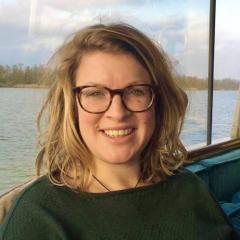Explore Dutch vocabulary for discussing living preferences, including 'stad' (city), 'platteland' (countryside), and key expressions to compare lifestyle advantages at B2 level.
Exercises Share Copied!
These exercises can be done together during conversation lessons or as homework.
Coming soon...
Don't see progress when learning on your own? Study this material with a certified teacher!
Do you want to practice Dutch today? That is possible! Just contact one of our teachers today.
City Life or Countryside? Exploring Dutch Vocabulary and Expressions
This lesson focuses on comparing and contrasting life in the city and life in the countryside using Dutch at a B2 proficiency level. You will deepen your understanding of descriptive vocabulary, useful expressions related to living environments, and advanced structures to express opinions and preferences.
Key Vocabulary
- de stad – the city
- het platteland – the countryside
- druk – busy/crowded
- rustig – calm/quiet
- voorzieningen – amenities/facilities
- verkeer – traffic
- natuur – nature
- woning – dwelling/home
- gezinsleven – family life
Important Expressions and Phrases
- Ik geef de voorkeur aan het leven op het platteland omdat het rustiger is. – I prefer life in the countryside because it is quieter.
- De stad heeft veel voorzieningen die het leven gemakkelijker maken. – The city has many amenities that make life easier.
- Er is altijd veel verkeer in de binnenstad. – There is always a lot of traffic in the city center.
- Wandelen in de natuur is ontspannend na een drukke werkdag. – Walking in nature is relaxing after a busy workday.
Grammar and Usage Highlights
We focus on comparative structures like meer ... dan (more ... than) and contrast using maar (but). You will learn to express preferences using verbs such as voorkeur geven aan (to prefer).
Practice forming complex sentences that involve cause and effect, for example, Omdat de stad druk is, kies ik liever het platteland. (Because the city is busy, I prefer the countryside.)
Differences Between English and Dutch in This Topic
In Dutch, adjectives such as druk and rustig are used similarly to English “busy” and “quiet,” but Dutch often prefers these adjectives without an article when used predicatively (e.g., “Het is druk” – “It is busy”). Also, Dutch commonly uses the phrase de voorkeur geven aan to express preference, which is more formal compared to English “prefer.” For example, instead of saying Ik prefereer, Dutch speakers tend to say Ik geef de voorkeur aan.
Useful phrases include:
- Wat vind jij beter? De stad of het platteland? – What do you think is better? The city or the countryside?
- Je kunt kiezen tussen het bruisende stadsleven en de rustige natuur. – You can choose between the vibrant city life and the quiet nature.








